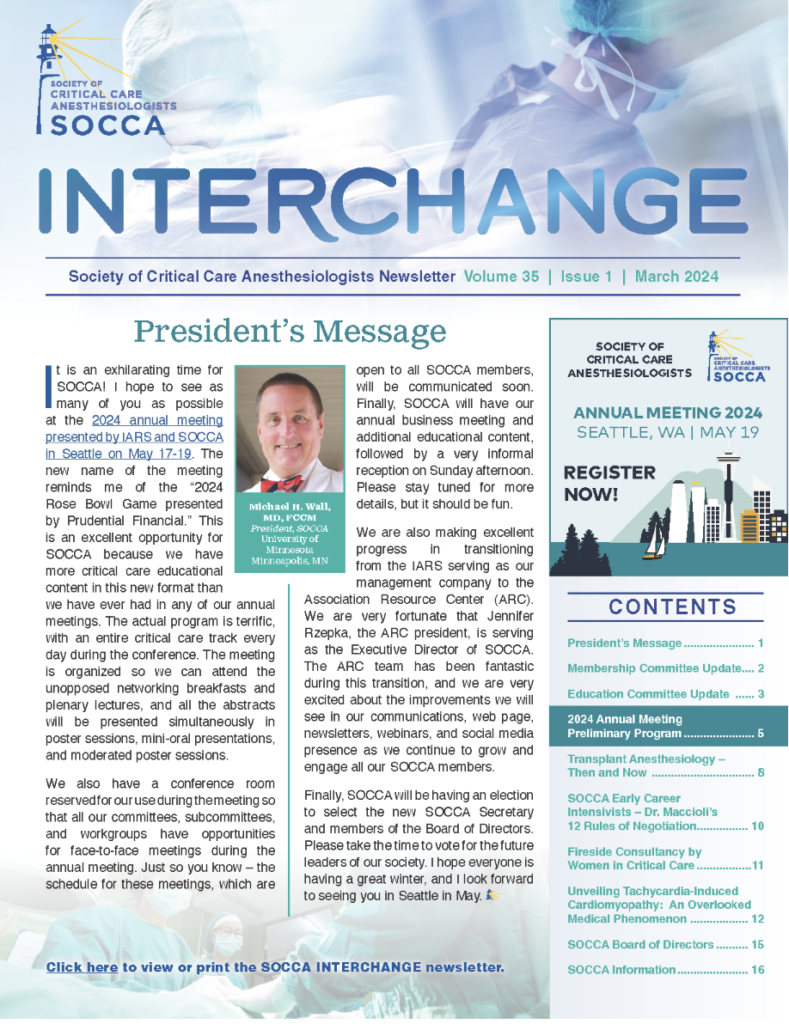The Intensivist and the Moral and Ethical Dilemmas of Modern-Day Organ Donation
Since the first organ transplant from a brain-dead donor performed in 1963 by a Belgian surgeon, the topic of organ donation and brain-dead donors has often been a moral and ethical impasse amongst the public as well as physicians.1 Intensivists, along with Neurologists, have become the primary referring physicians for these donations. After the publication of the Harvard committee’s report on guidelines for establishing ‘brain death’ in 1968, both the declaration of death by brain stem testing criteria, as well organ donation from brain dead donors, has become morally tolerable.2 Yet, saving lives is a physician’s main role both in the ICU, and out of it. The fundamental problem that differentiates donation from a living donor and a brain dead one is defining death certainly and irrefutably in a patient that, until a few hours earlier, was ‘alive’ with every valiant effort made to bring back to meaningful existence.
Organ donation saves lives of recipients and is a generous gift that prevents suffering. Nearly 95,000 American await organ transplants with kidneys being most in demand. In a 1967 commentary in the Annals of Internal Medicine, Thomas Starzl wrote about transitioning from alive donors to brain dead ones:
“Unfortunately, success will not imply that an ethical panacea will have been found, primarily because the terminal events in a prospective cadaveric donor are of such importance in determining the quality of a subsequently transplanted organ. It is conceivable that this fact could lead to subtle or even major adjustments in care that would be designed for the protection of the organ to be removed rather than for the benefit of its donor.”3
The physicians who fight for the lives of their patients day and night may feel morally and ethically challenged at shifting gears from ‘curing often’ to ‘comforting’ loved ones. Referring a patient for the removal of their vital organs, in pursuit of their successful transplantation into a recipient, silently shifts the focus of intensive care toward a second individual for whom the physician may not have a direct duty of care.
As doctors, we take vows to preserve life and to “do no harm.” This shift, therefore, despite years of experience, does not come naturally. We grieve for our patients who pass on, as the families do, and often, there is a sense of defeat that pervades a hard struggle in trying to salvage life for a critically ill ICU patient. Our duty of care now shifts to preservation of vital organs, rather than a physically present patient. These issues are magnified, for example, when organs have to be preserved on ECMO after brain death criteria are met.4 Brain death criteria in these circumstances are often abstruse, as conventional apnea tests may not apply, which are the backbone of the criteria.5 There are no agreed-upon guidelines of establishing brain death in such patients.
There is a wide gap between the demand for organs and the supply of medically suitable ones. Physicians can be conflicted and out of their moral depth when the duty to the patient and their family, and the duty to society, are intersecting.6 There are times when physicians would oblige family members and defer donation even in patients who may have wished to donate.7 The law and policy do not dictate these important decisions that are to be made instantaneously.8 Even in countries where ‘presumed consent’ exists for organ donation unless the patient has opted out, physicians may not refer for organ donation when they feel the family oppose it.9 Establishing brain death can be a final and irreversible proclamation that many physicians may wish to avoid, in favor of withdrawing non-beneficial life sustaining treatment.10 These morally and ethically disturbing points must be acknowledged and addressed when designing frameworks for physicians to work within, especially when faced with ever-advancing technologies that further blur the line between an unquestionable death and an organ-preserved brain dead patient.11 Guidelines must be developed concerning the determination of brain death while on ECMO and the use of technology to preserve organ function. At the end of the day, moral and ethical ‘buy-in’ is essential, and there is no better individual to do so than the patient him- or herself giving their own autonomous choice well in advance preemptively.
References
- Freeman RB, Bernat JL. Ethical issues in organ transplantation. Progress in Cardiovascular diseases. Volume 55, Issue 3, Nov-Dec 2012, pages 282-289.
- Aulisio MP, Devita M, Leubke D. Taking values seriously: Ethical challenges in organ donation and transplantation for critical care professionals. Crit Care Med. 2007 Feb;35(2 Suppl):S95-101.
- Starzl TE. Ethical problems in organ transplantation. A clinician's point of view. Ann Intern Med. 1967;67:32–36. doi:10.7326/0003-4819-67-3-32
- Richards JR. The Ethics of Transplants: Why Careless Thought Costs Lives. Oxford University Press. 2012.
- Lesieur O, Genteuil L, Leloup M. A few realistic questions raised by organ retrieval in the intensive care unit. Ann Transl Med. 2017;5(Suppl 4):S44. doi:10.21037/atm.2017.05.08
- Price D. End-of-life treatment of potential organ donors: paradigm shifts in intensive and emergency care. Med Law Rev 2011;19:86-116.
- Coggon J. Elective ventilation for organ donation: law, policy and public ethics. J Med Ethics 2013;39:130-4.
- Myburgh J, Abillama F, Chiumello D, et al. End-of-life care in the intensive care unit: Report from the Task Force of World Federation of Societies of Intensive and Critical Care Medicine. J Crit Care 2016;34:125-30.
- Rady MY, Verheijde JL. The science and ethics of withdrawing mechanical positive pressure ventilatory support in the terminally ill. J Palliat Med 2013;16:828-30.
- Shemie SD, Hornby L, Baker A, et al. International guideline development for the determination of death. Intensive Care Med 2014;40:788-97.
- Curtis JR, Vincent JL. Ethics and end-of-life care for adults in the intensive care unit. Lancet 2010;376:1347-53.




































